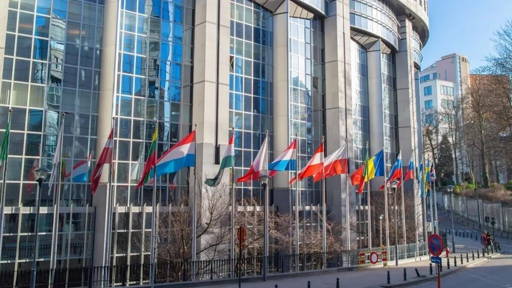Clayton Hamilton

COVID-19 has shown us that we can do much more to strengthen our ability to leverage data in preparing and responding to pandemics. This includes the use of data in the context of prediction/forecasting, monitoring, logistics and resource management, policy design and risk communication. In short, we need data to be timely, more granular, and of higher quality in order for it to be actionable by health authorities.
- There are three factors we need to understand and execute to meet this need:
- better health data governance (which includes privacy and many other facets);
- building a culture of data science in health and learn how to apply it to public health, health systems management and clinical care;
- strengthening the capacity of the health workforce to use digital solutions and data.
Other important conclusions:
- Having health systems with a mature digital infrastructure that are able to be quickly reconfigured in order to adapt to changing requirements is essential. Getting the basics right in how to design, operate and govern digital health systems is a critical factor in successful pandemic response.
- Better mechanisms are required for governments to engage with partners in times of crisis. Health authorities were overwhelmed with inputs and offers from innovators and solutions providers, and there was a lack of alignment and coordination with the public health response.
- How health authorities communicate to populations is a key determinant in building trust and engagement for observing public health measures during a pandemic. Infodemic management is now an important part of a national health communication strategy. It requires a specialized skill set and proactive effort to mitigate the effects of false and misleading information.
- Governments must take actions to ensure that human rights and civil liberties are not suspended or threatened in order to facilitate the implementation of digital solutions during a pandemic response.
- Digital solutions need to consider inequities in access and use as part of their design and implementation. During a pandemic, the most vulnerable population groups are often the least able or likely to access health services via digital solutions and this is especially pertinent as such groups are frequently the most exposed or susceptible to infection.
Dorli Kahr-Gottlieb

COVID-19 has showcased quite plainly and dramatically the crucial role data plays in fighting this – and any future – pandemic. It has also shown us that during these uncertain times we may not be able to rely on evidence the way we are used to. However, we may instead need to work with incomplete or even flawed data complemented by real-world data, according to the opinion of Professor Trish Greenhalgh from Oxford University expressed at the European Health Forum Gastein 2020.
Generally, we are now in an unprecedented position in terms of what kind of data we could gather and use for the benefit of public health. There are, however, some problems that stand in the way of fully harnessing this potential and prevent a purposeful large-scale collection of additional data. One vital point is the lack of standardization, which is an often-lamented shortcoming of the current EU data landscape and which needs to be addressed urgently.
At the same time, we need to continue to ensure data security; that data is used in the public interest to benefit all and thereby protect individual privacy – something the EU has been a pathbreaker in. While an eye needs to be kept on upgrading the digital infrastructure within health systems, we, as a society and as professionals across all sectors, also need to level up our digital skills and become confident contributors to purpose-driven innovation. The pandemic has pushed us a little more in that direction. This is a positive effect of these demanding times – as digital transformation is clearly not a concept of the future, but we are in the midst of it.
Roberts Bjelle

The COVID-19 is underlining the value and need for digital transition and solutions. During the pandemic, disruptions and restrictions in healthcare services are taking place, leading to citizens not being able to receive the care that they need.
Digital tools and technologies in health can offer new opportunities to maintain high-quality care. During the pandemic, this has been demonstrated by the increased use of, e.g. teleconsultations, AI assistants, mHealth apps, e-prescriptions and many other digital solutions.
Nonetheless, in the ongoing pandemic, some limitations have been revealed as well. For example, it is essential to ensure sufficient digital literacy across the population, in both citizens and healthcare professionals, to implement digital tools and technologies in healthcare effectively. This can be a challenge for, for example, older adults or individuals who do not have access to the internet. We must ensure to decrease this gap, so the population has equal opportunities to leverage digital health services across Europe.
Another limitation that has come to light are the barriers to effectivity utilize data. It is essential to ensure better-connected healthcare systems at both national and European level. This requires a sustainable infrastructure supporting interoperability and accessibility of health data – in a safe and effective manner. This is a challenge which is addressed in the European Commission’s Data Strategy to create the European Health Data Space (EHDS). Hopefully, through this initiative – digital advancement in health can accelerate even further in the near future.
Looking forward, technological maturity, scalability, digital literacy, and efficient health data governance and utilization are needed to transition to a more digital Europe of the future.
This article covers the interviews conducted by Lars Münter (Nordic Health 2030 Movement, Expert Group on Health Literacy, WHO) within the series of webinars organized by Nordic Health 2030.






